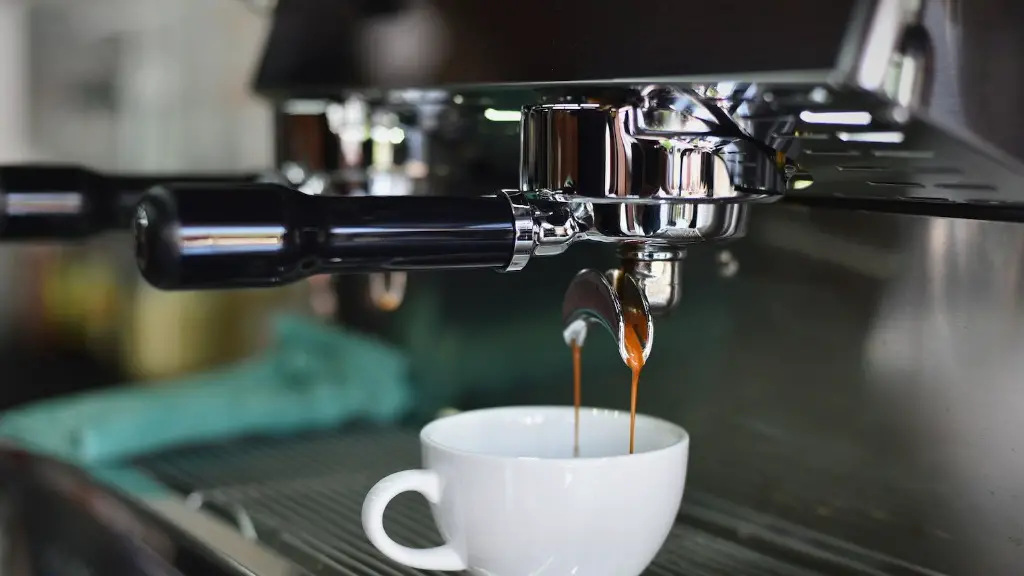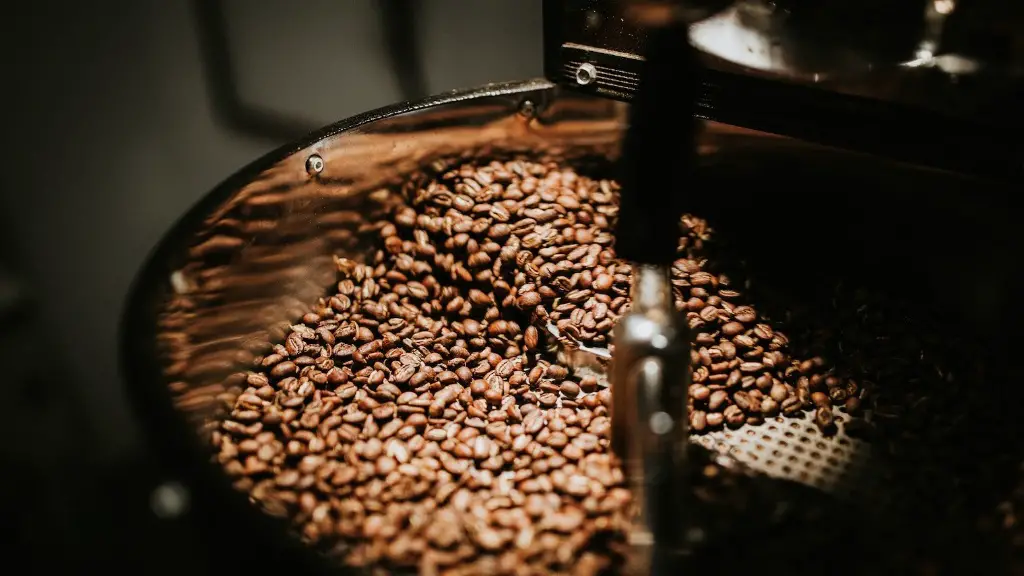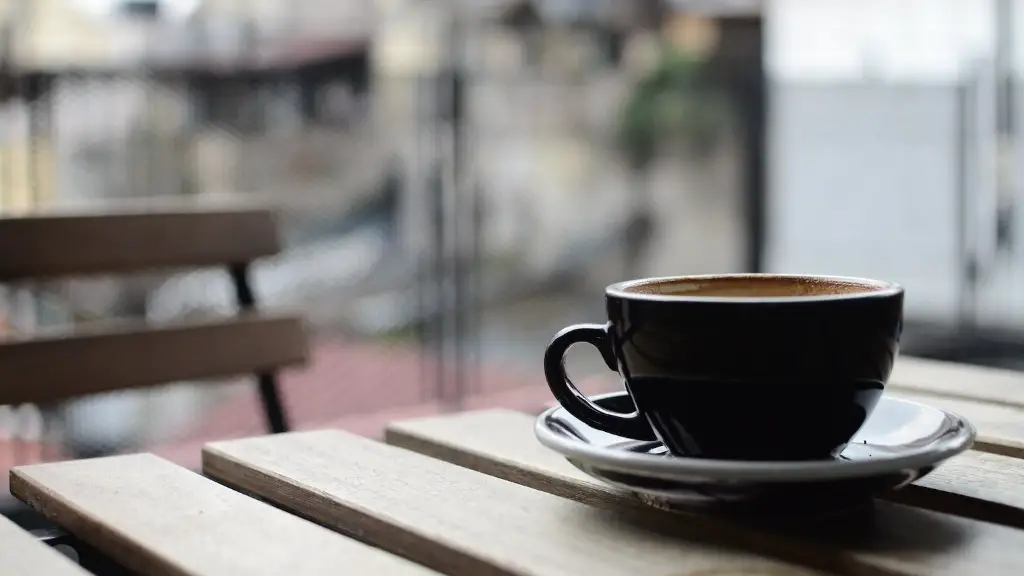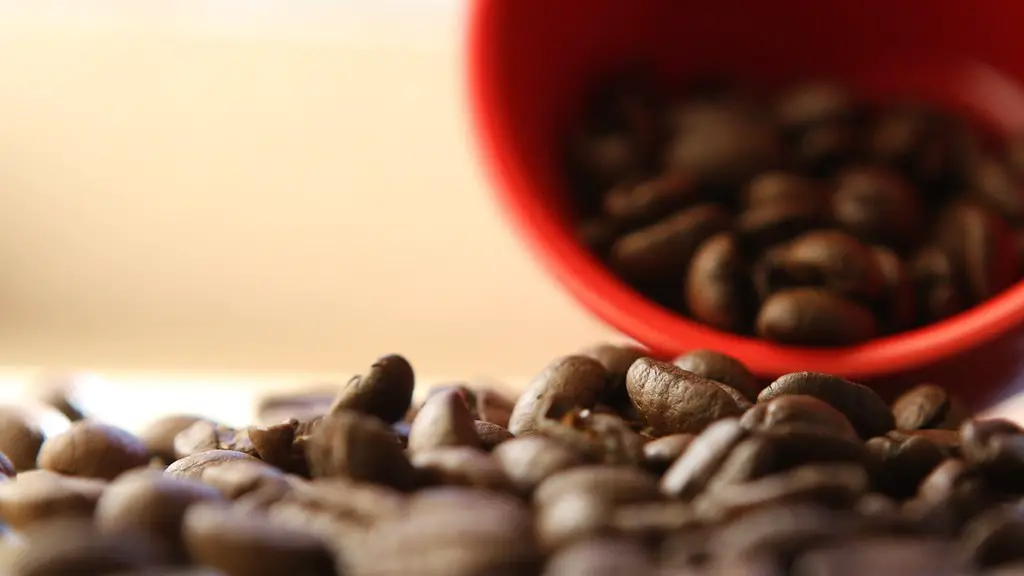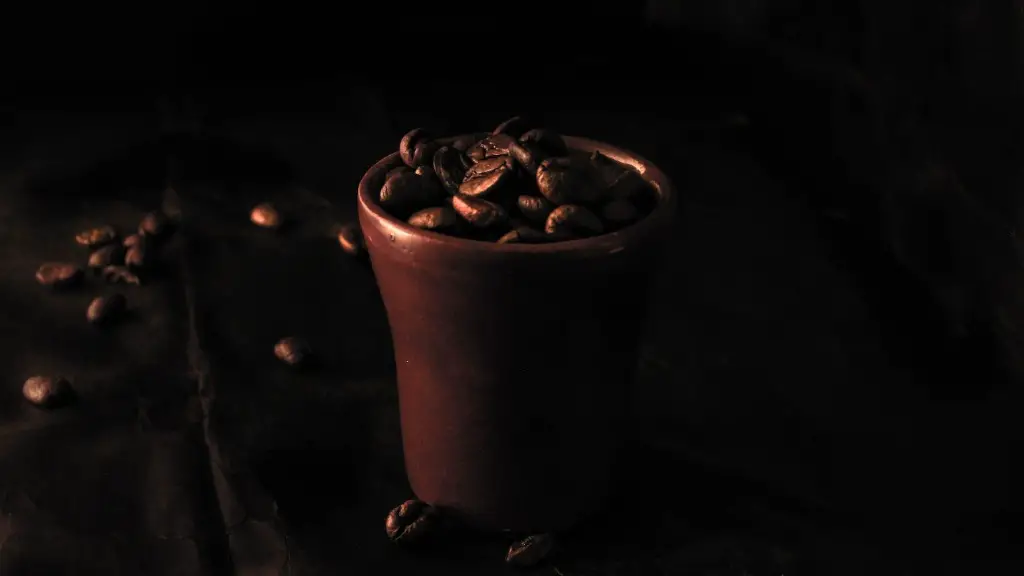Effects of Coffee on Anxiety
Studies show that drinking coffee has a direct effect on one’s psychological state and can contribute to feelings of anxiousness. Coffee consumption increases the neurotransmitter dopamine, which is responsible for stimulating the body’s “fight or flight” response. This response triggers a rush of energy that is beneficial in certain situations such as an emergency, but can be an overwhelming feeling of anxiety when consumed at other times. People may feel a sudden rush of nervous energy when drinking coffee, which contributes to an overall feeling of anxiousness.
The phenomenon of generalised anxiety disorder (GAD) can be enhanced by the consumption of coffee for those already susceptible to increased anxious feelings. Studies have shown that people with GAD who consumed caffeine were more likely to experience heightened levels of anxiety symptoms than those with GAD who did not drink coffee. Those with GAD are more sensitive to the effects of caffeine and can experience a range of side effects including mood swings, irritability and difficulty sleeping. Coffee can also increase the body’s production of cortisol, the stress hormone, while elevating blood pressure and heart rate.
It is important to note that anxiety created by coffee consumption is a very individual and personal experience and depends significantly on the person’s ability to regulate their own emotional state. Some people may have no reactions to drinking coffee, while others may find that even a small amount of caffeine can trigger an intense feeling of anxiousness. It is important to be aware of your own body’s reactions and individual response to the effects of coffee.
Taking Control of Coffee Consumption and Anxiety
Managing the levels of caffeine in coffee and understanding how your body reacts to coffee is the first step in taking control of coffee-induced anxiety. Drinking coffee in moderation can reduce some of the anxiety-causing effects of coffee, as can drinking decaffeinated coffee. Reducing the number of cups of coffee and increasing the interval between each cup can also reduce the effect of coffee on psychological wellbeing.
Additionally, limiting coffee consumption to no more than three servings per day and avoiding sugary drinks or sugary coffee drinks is highly recommended when avoiding coffee-induced anxiety. Furthermore, cutting coffee with other beverages, such as tea or milk, can help counter the anxiety-inducing effects of coffee. Avoiding coffee in the late afternoon and evenings is recommended in order to ensure a good night’s sleep and avoid feelings of anxiousness when sleeping.
When trying to assess how your body responds to coffee, it is important to pay attention to your own physical and mental reactions to the beverage. If you experience any physical or behavioural changes after consuming coffee, it is possible that the coffee is having an effect on your body and it is advisable to seek medical advice and find ways to reduce the amount of coffee you drink.
Health Benefits of Coffee
Despite its contribution to anxiety-related symptoms, coffee can offer some health benefits. Coffee is rich in antioxidants and has been shown to boost mental alertness, concentration, and energy levels. It also helps to increase blood flow throughout the body, which can reduce fatigue and help with physical performance. Additionally, drinking coffee has been associated with a decreased risk of certain illnesses such as Alzheimer’s disease and type 2 diabetes.
Therefore, it is important to weigh up the potential benefits of moderate coffee consumption with the potential side effects of anxiety. It is recommended to consult with your doctor if you experience any psychological effects from drinking coffee. Additionally, talking to a professional about the underlying causes of anxiety can be beneficial in finding ways to manage anxious feelings.
Psychological Benefits of Coffee
Research has shown that enjoying a cup of coffee can offer psychological benefits, such as increased feelings of wellbeing, improved mood, and enhanced cognitive performance. A cup of coffee can be a great way to socialise with friends and relieve stress and anxiety. Additionally, coffee can be used to boost your energy levels when you are feeling sleepy or low in energy.
Coffee can also be a great way to start the day and give you a mental boost. This is because coffee can help to provide focus and enhance concentration, which can be great for studying, work, or any other tasks. Finally, coffee can improve creativity and aid in problem-solving, making it an effective fuel for thinking and exploring ideas.
Alternatives to Coffee
It is important to remember that drinking coffee is not the only way to get a mental and physical boost. There are a variety of alternatives to coffee that can provide a mental and physical boost without causing anxiety. Natural teas, smoothies, and warm beverages such as hot chocolate can be a great way to get some energy without drinking coffee. Exercise can also be a great way to get your energy levels up and reduce anxiety levels.
Additionally, supplementing with vitamins and minerals can help to improve mental and physical performance. Foods such as yogurt, nuts, and fruits provide natural sources of energy and can reduce cravings for coffee. Finally, getting enough sleep and proper rest is essential in avoiding coffee-induced anxiety and feeling energised throughout the day.
Herbal Remedies
Herbal remedies such as chamomile, ashwagandha, and kava can be used as an alternative to coffee in order to reduce anxiety and boost mental and physical energy levels. Many herbal remedies have calming properties that can help to reduce anxiety and help to achieve a feeling of relaxation without the side effects of coffee consumption. Additionally, herbal remedies can help to boost mood and concentration and offer physical benefits such as increased energy and improved digestion.
It is important to note that although herbal remedies can help in managing anxiety and energising the body, their effect might take slightly longer to kick in than that of a cup of coffee. Therefore, when opting for an herbal remedy it is best to take it some time before you want the energising effects to kick in.
Relaxation Strategies
When feeling anxious or overwhelmed it is important to practice relaxation techniques such as meditation, deep breathing, or yoga. Relaxation techniques can help to manage symptoms of anxiety, reduce stress, and achieve a state of relaxation without the use of caffeine or other stimulants. Additionally, relaxation techniques can be used to counteract the side effects of drinking coffee such as difficulty sleeping or elevated heart rate.
Creating a bedtime routine can help to reduce the levels of anxiety associated with brewing a cup of coffee late at night. A bedtime routine can include setting aside time for reading, listening to music, or practising yoga or mindfulness to help create a calming atmosphere and reduce anxious feelings before going to bed.
Combining relaxation strategies with mindful consumption of coffee can be a great way to reduce anxiety-causing effects without completely eliminating coffee from the diet. Ultimately, it is important to understand the individual body’s response to coffee in order to determine the best approach to managing coffee-induced anxiety.
